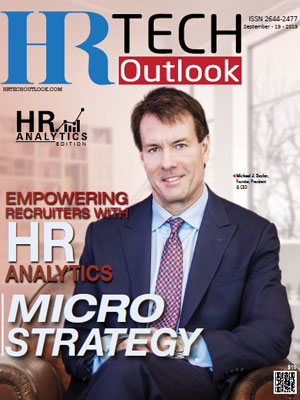The recent advancement in HR analytics has begun to present promising opportunities for the HR industry and professionals in general. The analytics presents a platter of good and bad trends that point at how HR leaders and practitioners are not merely looking at analytics but are successfully leveraging the analytics to make an impact. That being said, the room for growth in this sector is still infinite. However, over time, the goal of a people analytics project is going to remain gathering and understanding the connection between data—source-derived and KPIs—that will prove to be the guiding light for an organization’s HR department.
When it comes to HR analytics, the thumb rule remains unchanged as for other forms of analytics—Data is God. For the HR build an effective employee experience strategy, it is imperative that more feedback opportunities are created to take feedback, without using standardized survey system. In today’s data-hungry world, organizations’ HR departments often find themselves drowning in the ocean of siloed data while trying the gasp the air of results. To break free from this never-ending whirlpool of data, HR organizations need to streamline the fuel going into the analytics engine. By taking 2-3 surveys per year, the data used for the analytics results are bound to be more genuine.
To drive this thirst to provide better employee experience, the HR market is consolidating based on the foundational strategy to integrated employee recorded from different platforms. Against this backdrop, solution providers will hold the trend for data integration close while also implementing analytics innovations into tools and technology. Using the multiple data sources, organizations can effectively build an employee’s life cycle, and consolidation of all the life cycles can help organizations forecast the turnover. From a broader perspective, the use of multiple types of employee data can provide organizations with powers that were previously unheard of. And, the future of that power is finally here.
Further, in the months to come, solution providers are bound to move from offering only intelligence via analytics to delivering data-driven actions. Advanced analytics have made it possible to move past, merely thinking about survey results. These abilities are what will ultimately yield the impact and return on investment (ROI). Furthermore, riding the wave of digitization, the first significant breakthrough of AI is expected to hit the recruiting/hiring space very soon, and businesses need to be ready to jump on the bandwagon as that happens.
To help companies navigate through the best-breed HR analytics solutions provider, HR Tech Outlook has compiled this edition on top 10 HR analytics solutions providers. Through a distinguished panel comprised of CIOs, VCs, industry analysts, HR Tech Outlook’s editorial group, we have evaluated and shortlisted 10 organizations that have significantly stood out as some of the most prominent players in the HR analytics arena for the year 2019. The organizations featured in this issue through their business knowledge and industry prowess have established their eminence in the HR analytics sector.
We present to you HR Tech Outlook’s “Top 10 HR Analytics Solution Providers – 2019.”
















